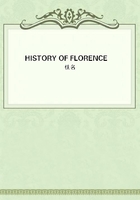
第154章
Ferrando sent Alfonso, his eldest son, to their aid, and Galeazzo came in person, each at the head of a suitable force, and all assembled at Castrocaro, a fortress belonging to the Florentines, and situated among the roots of the Appennines which descend from Tuscany to Romagna. In the meantime, the enemy withdrew toward Imola. A few slight skirmishes took place between the armies; yet, in accordance with the custom of the times, neither of them acted on the offensive, besieged any town, or gave the other an opportunity of coming to a general engagement; but each kept within their tents, and conducted themselves with most remarkable cowardice. This occasioned general dissatisfaction among the Florentines; for they found themselves involved in an expensive war, from which no advantage could be derived. The magistrates complained of these spiritless proceedings to those who had been appointed commissaries to the expedition; but they replied, that the entire evil was chargeable upon the Duke Galeazzo, who possessing great authority and little experience, was unable to suggest useful measures, and unwilling to take the advice of those who were more capable; and therefore any demonstration of courage or energy would be impracticable so long as he remained with the army.
Hereupon the Florentines intimated to the duke, that his presence with the force was in many ways advantageous and beneficial, and of itself sufficient to alarm the enemy; but they considered his own safety and that of his dominions, much more important than their own immediate convenience; because so long as the former were safe, the Florentines had nothing to fear, and all would go well; but if his dominions were to suffer, they might then apprehend all kinds of misfortune. They assured him they did not think it prudent for him to be absent so long from Milan, having recently succeeded to the government, and being surrounded by many powerful enemies and suspected neighbors; while any who were desirous of plotting against him, had an opportunity of doing so with impunity. They would, therefore, advise him to return to his territories, leaving part of his troops with them for the use of the expedition. This advice pleased Galeazzo, who, in consequence, immediately withdrew to Milan. The Florentine generals being now left without any hindrance, to show that the cause assigned for their inaction was the true one, pressed the enemy more closely, so that they came to a regular engagement, which continued half a day, without either party yielding. Some horses were wounded and prisoners taken, but no death occurred. Winter having arrived, and with it the usual time for armies to retire into quarters, Bartolommeo Coglione withdrew to Ravenna, the Florentine forces into Tuscany, and those of the king and duke, each to the territories of their sovereign. As this attempt had not occasioned any tumult in Florence, contrary to the rebels'
expectation, and the troops they had hired were in want of pay, terms of peace were proposed, and easily arranged. The revolted Florentines, thus deprived of hope, dispersed themselves in various places.
Diotisalvi Neroni withdrew to Ferrara, where he was received and entertained by the Marquis Borso. Niccolo Soderini went to Ravenna, where, upon a small pension allowed by the Venetians, he grew old and died. He was considered a just and brave man, but over-cautious and slow to determine, a circumstance which occasioned him, when Gonfalonier of Justice, to lose the opportunity of victory which he would have gladly recovered when too late.
Upon the restoration of peace, those who remained victorious in Florence, as if unable to convince themselves they had conquered, unless they oppressed not merely their enemies, but all whom they suspected, prevailed upon Bardo Altoviti, then Gonfalonier of Justice, to deprive many of the honors of government, and to banish several more. They exercised their power so inconsiderately, and conducted themselves in such an arbitrary manner, that it seemed as if fortune and the Almighty had given the city up to them for a prey. Piero knew little of these things, and was unable to remedy even the little he knew, on account of his infirmities; his body being so contracted that he could use no faculty but that of speech. All he could do was to admonish the leading men, and beg they would conduct themselves with greater moderation, and not by their violence effect their country's ruin. In order to divert the city, he resolved to celebrate the marriage of his son Lorenzo with Clarice degli Orsini with great splendor; and it was accordingly solemnized with all the display suitable to the exalted rank of the parties. Feasts, dancing, and antique representations occupied many days; at the conclusion of which, to exhibit the grandeur of the house of Medici and of the government, two military spectacles were presented, one performed by men on horseback, who went through the evolutions of a field engagement, and the other representing the storming of a town;everything being conducted with admirable order and the greatest imaginable brilliancy.
During these transactions in Florence, the rest of Italy, though at peace, was filled with apprehension of the power of the Turks, who continued to attack the Christians, and had taken Negropont, to the great disgrace and injury of the Christian name. About this time died Borso, marquis of Ferrara, who was succeeded by his brother Ercole.